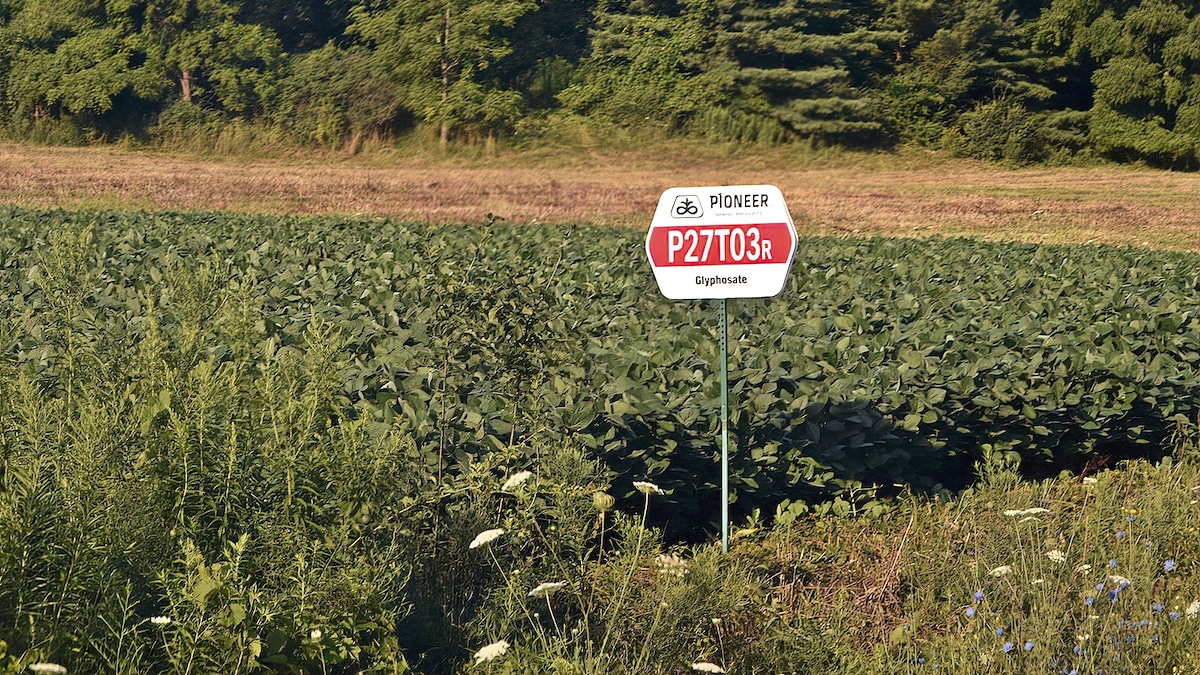

A sign indicates that glyphosate has been used on a farmer's field. Jo Zimny / Flickr
More than half the bacteria in the human gut microbiome are sensitive to glyphosate, the mostly commonly used herbicide in the world, reported scientists this month in the Journal of Hazardous Materials.
Researchers from the University of Turku in Finland recently developed a novel bioinformatics tool to predict if beneficial bacteria in the human gut are affected by exposure to glyphosate.
They found that the herbicide could disturb the natural cycles of microbiome life, and potentially harm human health, through weakening the system and causing greater susceptibility to diseases.
“Glyphosate targets an enzyme … [that] is crucial to synthesizing three essential amino acids,” said Pere Puigbò, who co-developed the bioinformatics tool.
Glyphosate is regularly in the news, viewed as a potential threat to health and well-being because of its widespread use on crops including corn, soy and canola. It is also a household weed killer, particularly the Monsanto/Bayer-owned brand Roundup.
The herbicide is currently banned from many countries including Germany, Saudi Arabia and Vietnam, and is heavily restricted in others. Cities and states across the U.S. are starting to reduce use or pushing for a ban, due to mounting health concerns. Other cities, such as Los Angeles and Miami, have already banned use.
“We need experimental research to study the effects of glyphosate on microbial communities in variable environments,” said researcher Marjo Helander in a statement about the findings.
“This groundbreaking study provides tools for further studies to determine the actual impact of glyphosate on human and animal gut microbiota and thus to their health.”
- Honeybees Are Struggling to Get Enough Good Bacteria - EcoWatch
- Monsanto's Roundup Destroys Healthy Microbes in Humans and in ...
- EPA Glyphosate 'Safe' Levels May Be Dangerously High - EcoWatch

 233k
233k  41k
41k  Subscribe
Subscribe 